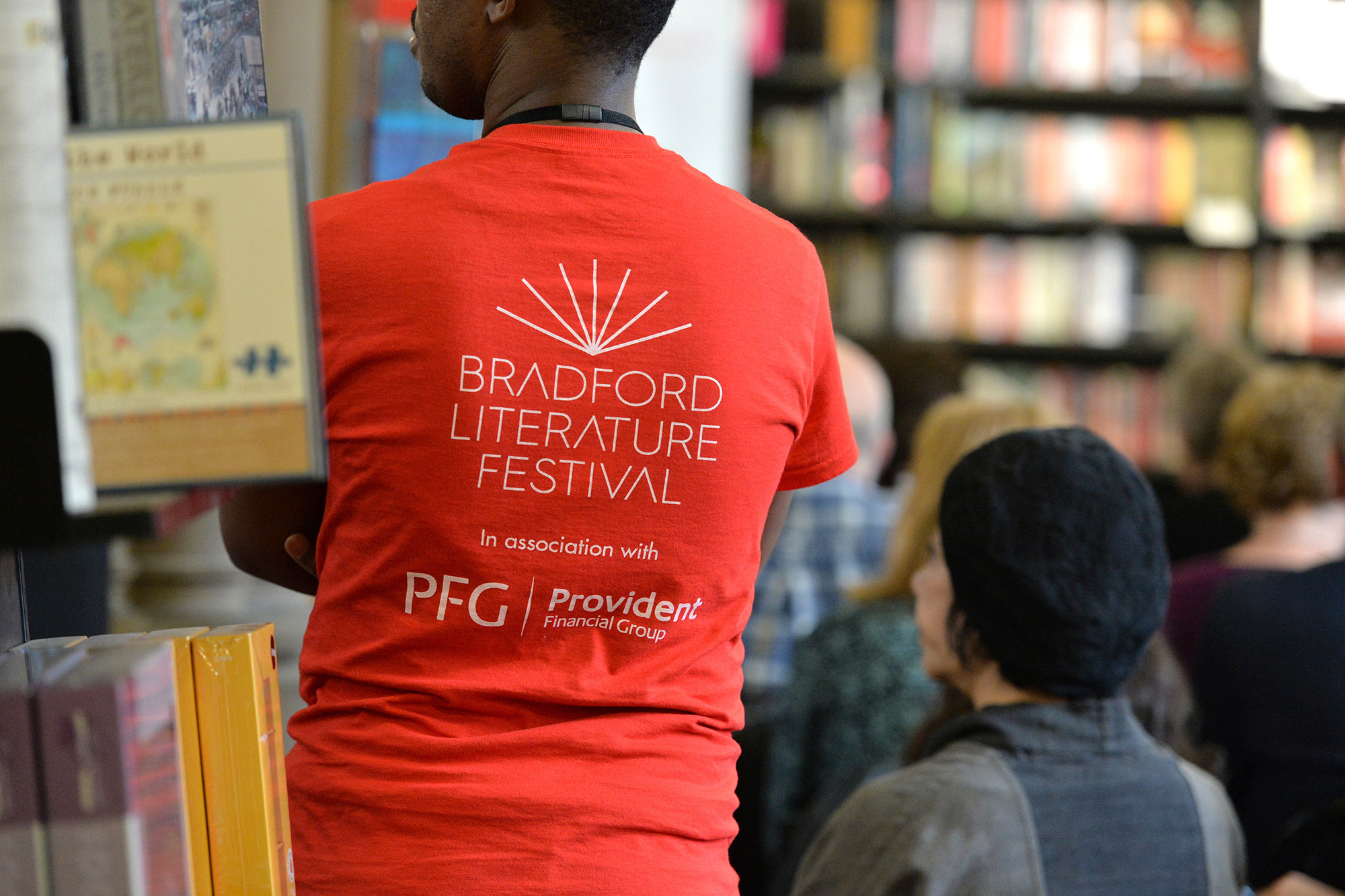Aneeka Hussain gives an insightful and personal review of Bradford Literature Festival 2017 where she volunteered as the city she calls home was transformed into a hub of culture and excitement.
From 30th June to the 9th July, Bradford city centre is transformed into a world of Literature and History: it is a world created through values of respect, empathy and empowerment, one where we all have a room of our own. The festival was founded by Syima Aslam and Irna Qureshi in 2014, who were eager to remind everyone about Bradford’s rich history, which is often glossed over.
If you think literature is solely about books, then think again. I was thrilled to see Bradford’s cultural background being reinforced. The atmosphere during the jam-packed ten days of the festival is like no other; it’s not just about Haworth and the Brontë’s (although that would have been enough to maintain my interest alone), there really is something for everyone to participate in. The iconic festival hub in City Park becomes your second home, it’s a place where you can meet interesting people, buy books, stuff yourself with cake and drink all the coffee and tea in Bradford! Brits from all-over shed their often-reserved personalities to revel in unison, celebrating talent from all walks of life.

Being a part of the amazing volunteering team meant that I had a rewarding insider’s experience – just a few weeks ago, I had been discussing Linton Kwesi Johnson’s poems in my seminar and there he was at the festival. I never thought that I would take a historical tour of Undercliffe Cemetery, one of my local Victorian attractions, but Mark Davis’ expert knowledge made it unmissable – I uncovered Bradford’s history and came to understand the class divide’s impact on everyday life and death.

The festival atmosphere is rooted in encouraging individuals to speak about their personal experience and this is exactly what the school events achieved. Award-winning writers, including Vivian French and Richard O’Neill, inspired the younger generation to tell their own stories as well as hearing others’.
‘[the founders] were eager to remind everyone about Bradford’s rich history, which is often glossed over.’
There was even a film screening of The Boy in the Striped Pyjamas followed by a Q&A with John Boyne. I had read the novel but it was my first time watching the movie (the ultimate faux pas for an English student, I know!). I naïvely assumed that I was emotionally prepared but how wrong I was! Nothing could prepare me for the heart-wrenching moments and I, along with the rest of the audience, proceeded to seek solace in John Boyne’s words. He described the emotional intensity involved in translating the words on the page to scenes on a screen that would retain the importance of friendship.
This emphasis on unity was prominent particularly during the ‘Tappay and Bolian: South Asian Wedding Folk Songs’ event at the magnificent Alhambra. It was a colourful evening where loud and proud, local performers celebrated South Asian heritage through wedding songs.

The festival’s inclusivity is clearly enforced and the most important part of the festival. This can be noted from the event themes: Religion, Science, Empire, Gender, Jane Austen and Harry Potter. In a world where sometimes minorities don’t exist, we’re forgotten but Bradford Literature Festival is a safe space that unites and brings talent to the forefront.
Aneeka Hussain
(Image courtesy of Bradford Literature Festival)

